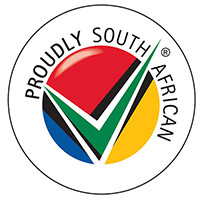Many attempts have recently been made by the government to ensure that it does not operate in isolation or in silos.
Silos are actively discouraged in favour of collaboration, and so we have think tanks, social compacts and accords that in theory enable us to pull together for the greater good of the country.
But do these accords, agreed at the highest levels from the Presidency down, reach grass roots level where implementation is effected? Is everyone as committed to positive outcomes as the next person? It doesn't always seem so, especially from a local procurement perspective.
In 2011, the Local Procurement Accord was signed by all the constituents of Nedlac - government, labour, business and civil society - all pledging to increase local procurement and favour local manufacturers, with a target of 75 percent local content set down.
The government went on to designate a number of specific items which the public sector was legislated to procure locally, and this has been added to over the intervening years, although we know that overall compliance with the Preferential Procurement Policy Framework Act by public sector officials remains low.
Eight years later, we are still canvassing business to increase its levels of local procurement.
There has also been a Skills Accord, and in 2018 the Jobs Summit Framework Agreement, and the Public Private Growth Initiative.
At the Jobs Summit, Proudly SA took in excess of 20 companies to pledge increased levels of local procurement and of local content in production processes that would translate into the creation of jobs.
In the year since it was held, we have followed up with each of those companies and reported back to the working committee on their progress, which is less than satisfactory.
Since follow-up by all the parties was not done as diligently as ours, the president has set up a monthly Monday working group to track progress, and to get all the Nedlac signatories to the Framework Agreement to deliver on their commitments.
So, do social partners to these accords really deliver on the promises which they may have made? The answer is sometimes they do, but more often than not, they don't.
The problem lies in communication filtering down to the constituents of the bodies that pledge on their behalf.
In the case of civil society, do the various organised community groupings even know there is a localisation drive in the 2001 Local Procurement Accord which they are supposed to get their constituents to support?
And while we actively engage Cosatu, Fedusa and Nactu and know that they are familiar with the collective undertakings made by Labour, are the individual unions that they represent aware of these?
We only wish that all unions were as active in the quest for increased localisation and local procurement as Sactwu.
We do not see enough pressure being brought to bear by union shop stewards on employers, to increase the local content of their supply chain as a part of their demands to drive the economy.
Proudly SA, as part of some of these accords as well as in our own organisational capacity, has engaged a number of business industry bodies on the subject of increased localisation. These have included the financial services sector, automotive sector and manufacturing as well as the poultry sector.
We have received mixed responses, enjoying closer relationships with some more than others, and I suspect the same is true for the government's interaction with some of the same representative bodies.
Perhaps we should include clauses in our agreements that compel members of these bodies to comply with the conditions of the accords, and not assume that the information will reach those in a position to fulfil promises made on their behalf.
We nevertheless acknowledge some private sector companies' contribution to the current editions of Sectoral Master Plans that are being drawn up by the government and relevant stakeholders.
The Poultry Sector Master Plan was recently released and had extensive input from business and civil society, including the Fair Play movement that has been very vocal and supportive in that sector.
The Automotive Master Plan has also been launched and we are working outside of this with Naamsa on their local commitments.
Clothing retailers made significant contributions to the recently finalised master plan for that sector for which we applaud them.
We hope more industry bodies will engage their members on the promises made by organised business and turn commitments into reality.
These wins give us great comfort that we are moving in the right direction. But we want to hold every signatory to every accord responsible for their own role, and that of their constituents, in their ultimate success. Without buy-in from all parties, the concept of an "accord" will soon be thought of in the same way as a "talk shop" and we all know where they have gotten us to date.


